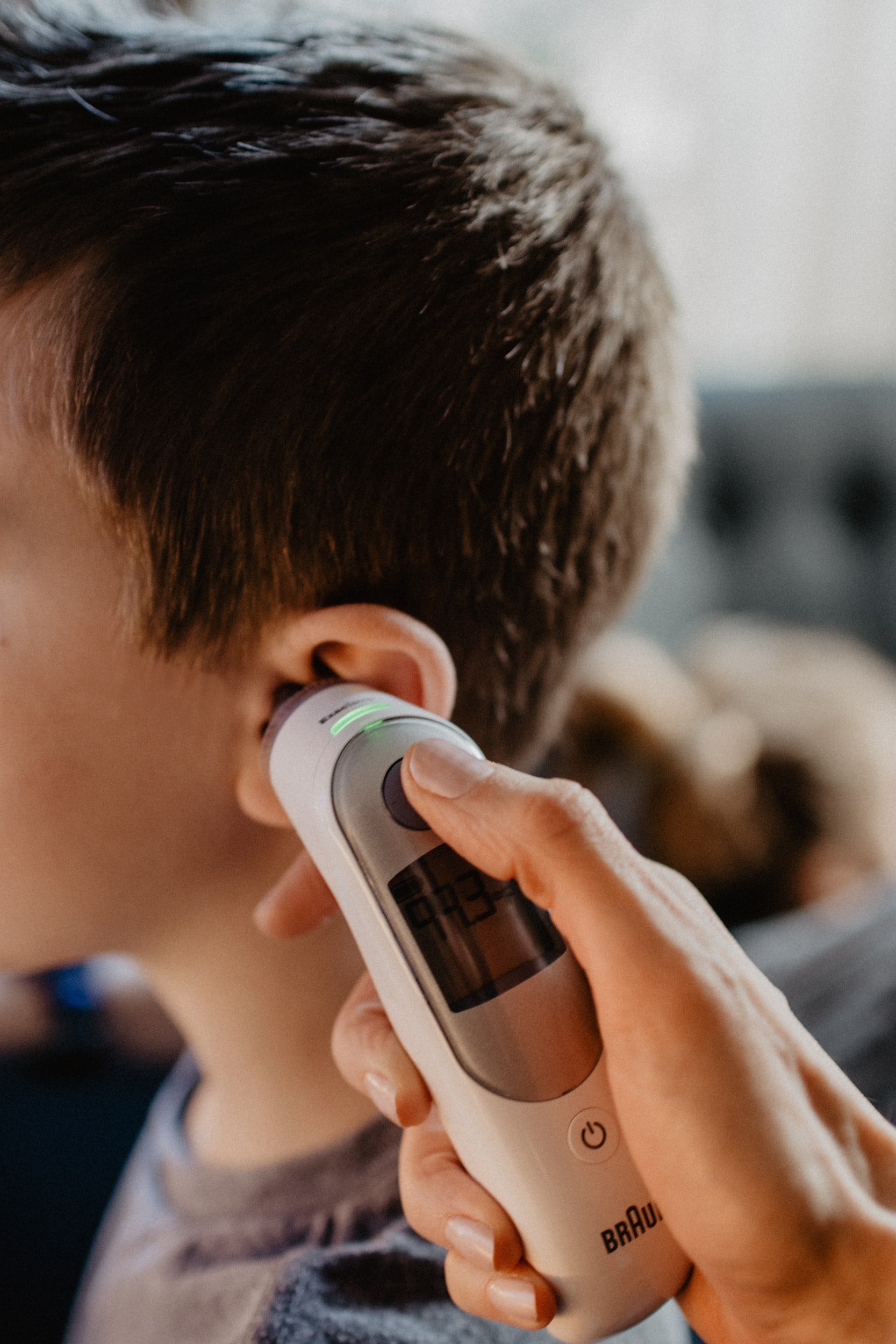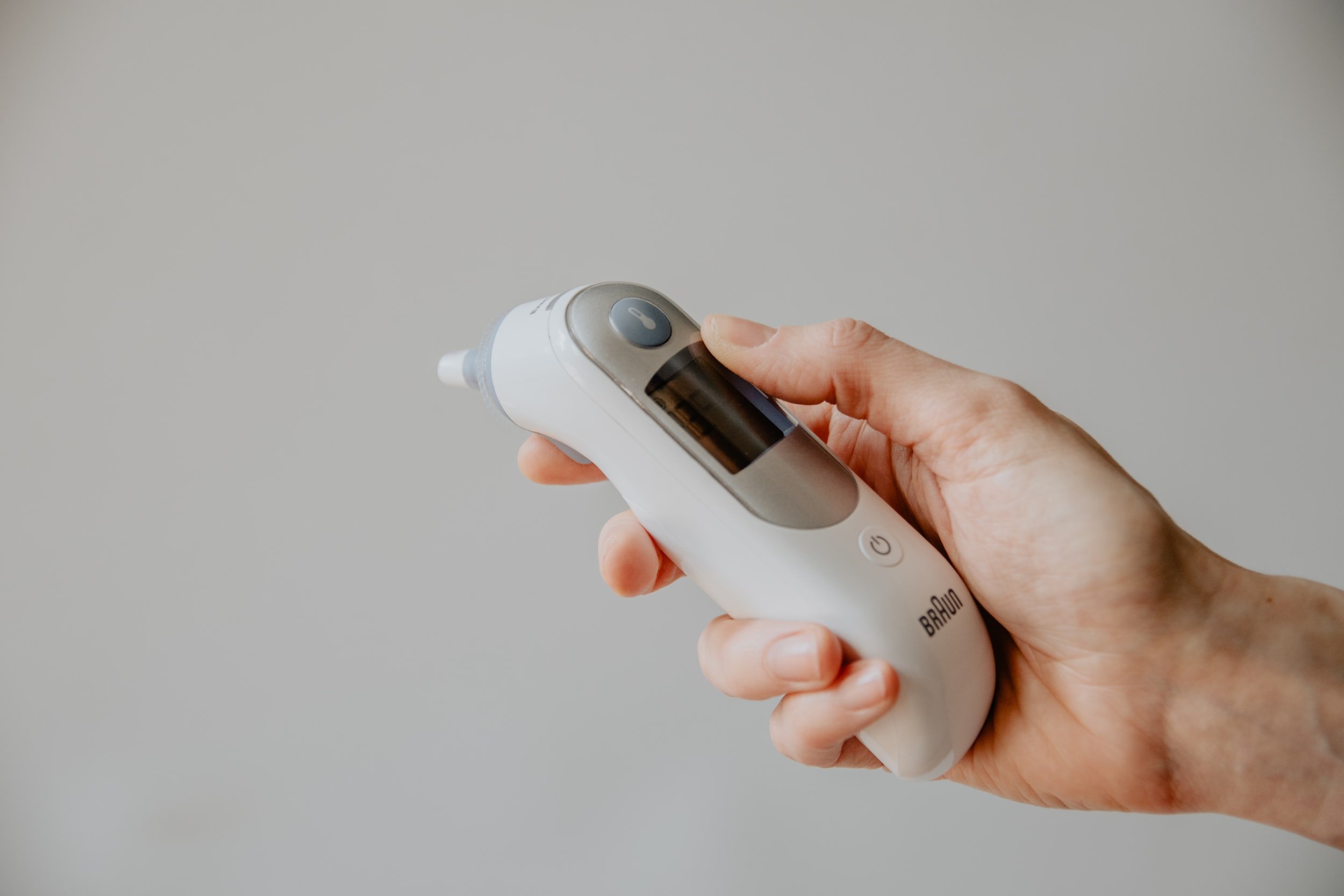Fever 101
Very little causes as much parent stress and fear as a fever. The internet (and sometimes family members and mom groups) can all make you spiral.
It doesn’t help that when your child has a fever, they tend to look and feel crummy, so it is easy to start to worry and google. So this is the first of a few articles on fever that I hope can ease your minds and help you stay away from the internet.
As always: this information is purely educational, and cannot replace individualized assessment from your healthcare provider. Please, call your pediatrician if you have questions about your child.
What is a fever?
Fever is a normal body response to infection or inflammation; increasing core temperature makes it easier to kill off invading pathogens (bacteria, viruses, etc). Other inflammatory conditions, such as cancer and autoimmune problems can also cause fever.
Children are also more likely to develop fever than adults when they encounter the same illness. This is partly because the immune response the first few times your body “sees” a pathogen is more robust.
How should I check my child’s temperature?
Under the age of 1, a rectal temp is most accurate. Although there are theories regarding adding degrees to axillary or oral temperatures to get the “real” number, most physicians do not feel this is truly accurate. It also encourages a fixation on the number of the temperature rather than a big-picture overview of how the child is doing.
Many parents feel nervous about doing rectal temps. It is fine to try to measure in another way, and to keep the rectal measurement as a back-up for older infants and kids, but for infants < 2 months old (when you really do need the accurate measurement) I do recommend rectal measurements.
What thermometer should I buy?
Parents get very bogged down in details about which thermometer to purchase. And although I have some favorites (See my faves page for recommendations), and the options seem to get more and more high-tech and expensive, at the end of the day the accuracy does not matter as much as you think it does.
Yes. I said what I said.
Pediatricians care more about how your child is acting than the difference between 101.1F and 101.5F. A holistic approach is the most helpful one here.
The Pediatrician Mom Tip: Temperature accuracy is important in a few specific scenarios: if your child is very young (under 2-3 months) or if your child has a chronic medical condition that can predispose them to complications and more serious illness.
What does my pediatrician want to know if my child has a fever?
There are some helpful pieces of information to collect if you are calling your pediatrician about a fever. This is not a comprehensive list, but here are some things that can help guide your conversation and your pediatricians decision-making.
What the temp was and how you measured it
When the fever began
How well it is responding to fever-reducers
Any associated symptoms (rash, joint pain, abdominal pain, sore throat, runny nose, cough, vomiting, etc)
How your child looks/ is acting
How hydrated your child is (see this post for how to assess)
Any underlying medical conditions
Your child’s age
Any potential exposures
Common fever myths
Fever can cause brain damage
Fever from infection does not typically cause harm or brain damage. Even febrile seizures, which occur due to rapidly rising body temperatures, do not cause “brain damage” (although they are very alarming to experience as a parent).
Temperatures above 107F can cause problems, but this occurs very rarely and is typically a result of environmental heat exposure and severe dehydration than due to illness. Remember: the elevated temperature when your child has a fever is a normal body response to infection involving a change in the set point of the body.
I should wake my sleeping child to check their temperature
Please, no. In general we do not recommend waking up a calm, comfortable, sleeping child simply to check their temperature, unless they are <3 months old or have underlying conditions that make knowing whether or not they have a fever important.
Very often, children who have fevers are uncomfortable. If they are whimpering, restless, or they wake up because they are uncomfortable, by all means check the temp (or give them an antipyretic/fever reducer).
A cold bath is a good idea to bring down a fever
Cold baths are not comfortable. They also induce shivering which can paradoxically increase the body temperature. Remember, your goal is not to fixate on bringing down the temp. Your goal is to keep your child comfortable.
There is a specific “danger” number at which point I should drop everything and run to the ER
Decision-making about next steps in terms of an ER visit vs doctor's office vs watch/wait depends on more than just a number. The temperature at which we worry about organ damage is 107+ (which is very unlikely with infection).
Remember, we generally like to take a holistic approach in pediatrics: we treat the child, not the number.
I should wait to give my child a fever-reducer so the doctor can see how high the temperature gets
Under 2 months of age, I agree with this. No fever reducers, please.
But for an older child, please, give them the medication and get them comfortable and hydrated. Believe it or not, that provides more information to me than the number of the fever.
I believe you about the fever, I promise.





